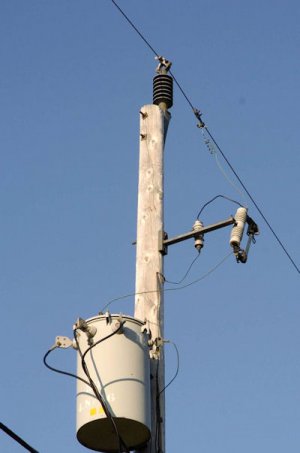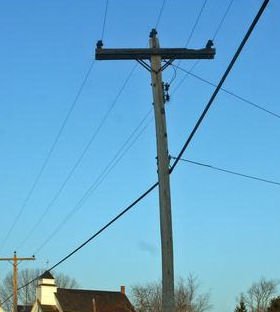Hi, I've been wanting to build a shop for several years now. I'm finally almost in a place where I can do it. I don't have a lot of experience - I worked with a CNC Mill and a manual lathe when I was an undergrad engineering student, and that's about it. I am approaching this as a hobby. I have made my living as a surgeon, first in the army, now at the VA. But I am starting to slow down, and thinking about retiring in the next 10 years. I want to explore the interests I never had time for when I was a younger man.
I think the hardest part about getting started in this is that you don't know what you don't know. I've tried to I've done a lot of reading, and I think I'm at the point where I can start asking questions and making some more concrete plans. To that end, I'm going to start three threads - the first on the shop itself, the second on the lathe and the third on the mill. Since you can't really have a shop without a location, I'll start with the shop itself. The first question people ask when people ask for advice is "What do you want to do?" So I'll try to answer that first, and then ask the quesion's I've thought of.
I have a small farm. I want to build a shop, and I've identified 4 things that I'd like to be able to do in it. First, I want to dedicate part of it for processing our animals for food. This will be non-commercial, strictly for our own food. But my wife says "Your building a shop? Great, you can move your [*stuff] out of my kitchen." So that is a must. I don't need a lot of space for this. A 4x6 cold room, a sink and a 5x5 area to do the actual processing. So, round figures, something like an 8x10 area. The actual kill and initial cleaning will be done outside, so only the hanging and cutting of the meat inside. (I know, not machinist related, but need to know what I plan for when designing the over-all shop size.)
Next, I want an area for machining. I expect I will need an lathe, and a mill. I'm not sure what size of each yet. It's been hard for me to define what I want to do, because I don't plan to do this for money. I have wide ranging interests, and I want to be able to explor them. For example, I want to work on smaller items, such as machinist's puzzles and executive "toys" in brass and aluminum. I have an idea for a 3d maze, that would be brass and acrylic, about 3 inches in size. I would like to be able to mach chess pieces, not more than 2 inches in diameter. Model steam engines are a possibility. On the larger end, I want to be able to make / repair things for the farm equipment. On project I am working on (just design phase right now) is building a mini-baler to run with my bob-cat for baling pine straw. Also, I find a lot of the projects I'd like to try are actually tools. I watched a great video on building a belt sander that seems do-able, for example. I also am an avid shooter, mostly with pistol. I would like to be able to do some repair work / frame refinements and possibly engraving work. So, that should give you an idea of the types of projects I am interested in.
Third, I want an area for welding. My son is a welder (works mostly in MIG, but some TIG) He has his home unit, that he said we could keep in the shop and I could use when he wasn't. (This would obviously benefit him also, in giving him a place he could do things at home... and yes I am shamelessly attempting to make it to his benefit to spend more time with his old man.) My interest in welding is only for farm machine repair, and the small baler project I mentioned.
Finally, at some point down the line, I would like to have a small forge. This would allow me to do tempering, and who knows, maybe I would get into some blade-smithing at some point.
I am currently planning on a 24x 36 ft shop. I'm planning on doing a pole-barn construction, Insulated, concrete floor with AC ( I live in georgia, AC is pretty much required in the summers, as well as to keep the humidity down in the shop so your tools don't rust.)
The first question I have, is regarding power for the shop. I've read a lot of posts talking about 3-phase power for mills and lathes. Would it be worthwhile to run native 3-phase to the shop? Since I'm starting from scratch, I imagine I could put in anything I want... Or is it better to run single phase, but then use a VFD, so you get variable speed from that?
Any other suggestions or tips are greatly appreciated. If you were to build a shop from scratch, what things would you want to ensure that you did, or did not do?
Thanks again,
I think the hardest part about getting started in this is that you don't know what you don't know. I've tried to I've done a lot of reading, and I think I'm at the point where I can start asking questions and making some more concrete plans. To that end, I'm going to start three threads - the first on the shop itself, the second on the lathe and the third on the mill. Since you can't really have a shop without a location, I'll start with the shop itself. The first question people ask when people ask for advice is "What do you want to do?" So I'll try to answer that first, and then ask the quesion's I've thought of.
I have a small farm. I want to build a shop, and I've identified 4 things that I'd like to be able to do in it. First, I want to dedicate part of it for processing our animals for food. This will be non-commercial, strictly for our own food. But my wife says "Your building a shop? Great, you can move your [*stuff] out of my kitchen." So that is a must. I don't need a lot of space for this. A 4x6 cold room, a sink and a 5x5 area to do the actual processing. So, round figures, something like an 8x10 area. The actual kill and initial cleaning will be done outside, so only the hanging and cutting of the meat inside. (I know, not machinist related, but need to know what I plan for when designing the over-all shop size.)
Next, I want an area for machining. I expect I will need an lathe, and a mill. I'm not sure what size of each yet. It's been hard for me to define what I want to do, because I don't plan to do this for money. I have wide ranging interests, and I want to be able to explor them. For example, I want to work on smaller items, such as machinist's puzzles and executive "toys" in brass and aluminum. I have an idea for a 3d maze, that would be brass and acrylic, about 3 inches in size. I would like to be able to mach chess pieces, not more than 2 inches in diameter. Model steam engines are a possibility. On the larger end, I want to be able to make / repair things for the farm equipment. On project I am working on (just design phase right now) is building a mini-baler to run with my bob-cat for baling pine straw. Also, I find a lot of the projects I'd like to try are actually tools. I watched a great video on building a belt sander that seems do-able, for example. I also am an avid shooter, mostly with pistol. I would like to be able to do some repair work / frame refinements and possibly engraving work. So, that should give you an idea of the types of projects I am interested in.
Third, I want an area for welding. My son is a welder (works mostly in MIG, but some TIG) He has his home unit, that he said we could keep in the shop and I could use when he wasn't. (This would obviously benefit him also, in giving him a place he could do things at home... and yes I am shamelessly attempting to make it to his benefit to spend more time with his old man.) My interest in welding is only for farm machine repair, and the small baler project I mentioned.
Finally, at some point down the line, I would like to have a small forge. This would allow me to do tempering, and who knows, maybe I would get into some blade-smithing at some point.
I am currently planning on a 24x 36 ft shop. I'm planning on doing a pole-barn construction, Insulated, concrete floor with AC ( I live in georgia, AC is pretty much required in the summers, as well as to keep the humidity down in the shop so your tools don't rust.)
The first question I have, is regarding power for the shop. I've read a lot of posts talking about 3-phase power for mills and lathes. Would it be worthwhile to run native 3-phase to the shop? Since I'm starting from scratch, I imagine I could put in anything I want... Or is it better to run single phase, but then use a VFD, so you get variable speed from that?
Any other suggestions or tips are greatly appreciated. If you were to build a shop from scratch, what things would you want to ensure that you did, or did not do?
Thanks again,



